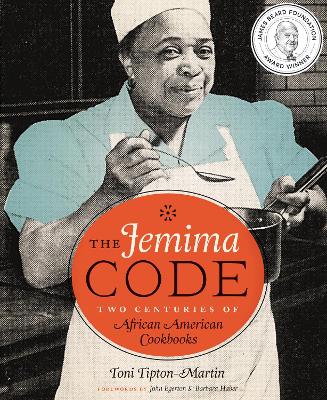Reviewed by annieb123 on
The Jemima Code is a historical retrospective of African American culinary tradition throughout American history. Released in 2015 by the University of Texas Press, it's 264 pages and available in hardcover format.
This is a meticulously researched and indexed history of African American culinary culture as woven into the fabric of the United States in the form of published cookbooks written by black cooks. The author's respect and dignified treatment of the subject is clearly written into the text alongside the academically rigorous and well written prose.
The book is arranged in chronological order with facsimile pages, illustrations, and reprints. Although not a cookbook in any form, there are a number of full recipes included from older cookbooks (listed in bold print in the comprehensive index). The recipes are traditional, authentic, and inventive. Due to the nature of race history in the USA over the last centuries, there is a significant portion of the book which I found melancholy and I was deeply affected by the contained stories of generations of black cooks (usually women) working in an unbroken line down to the present day.
The book covers dozens and dozens of cookbooks. Each entry contains a picture of the original cookbook cover, often some historical publication information along with the concise and insightful commentary. There are some recipes included as facsimile pages from original texts, but they're not the main attraction. The commentary is unflinching and sometimes painful (for this white girl) to read.
There is little that is more culturally and emotionally relevant than our food traditions. This book provides an exhaustive and balanced look at a vital and unique (and large) part of American culinary history. This would be a valuable resource for related academic subjects such as gender studies, American history, black history, advertising, etc. Five stars.
Disclosure: I received an ARC at no cost from the author/publisher for review purposes.
Reading updates
- Started reading
- 21 March, 2020: Finished reading
- 21 March, 2020: Reviewed
